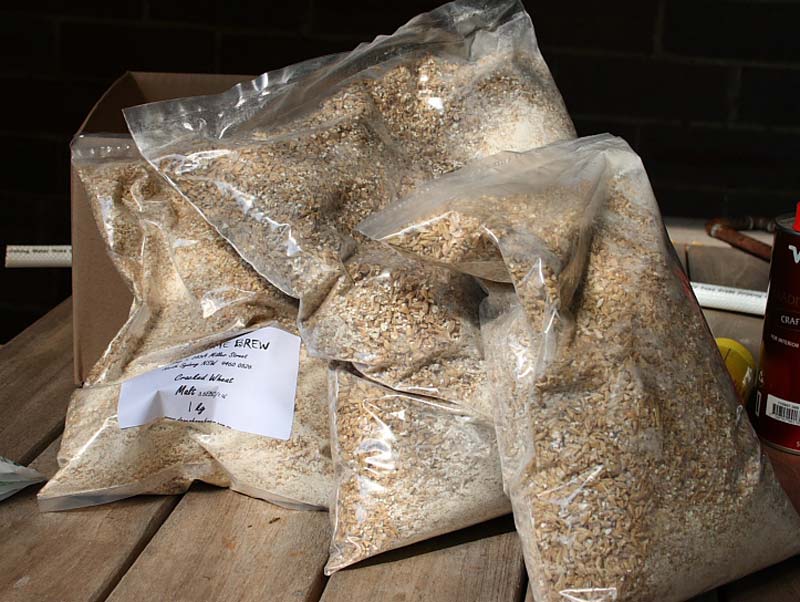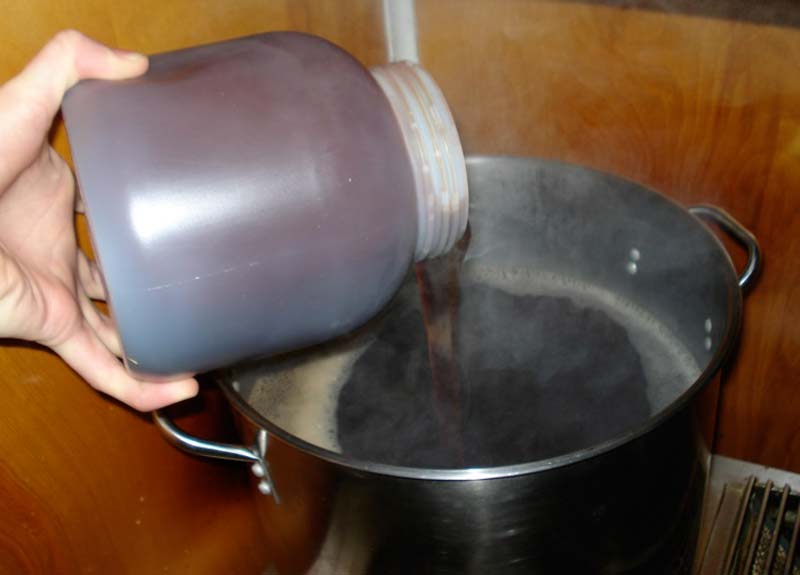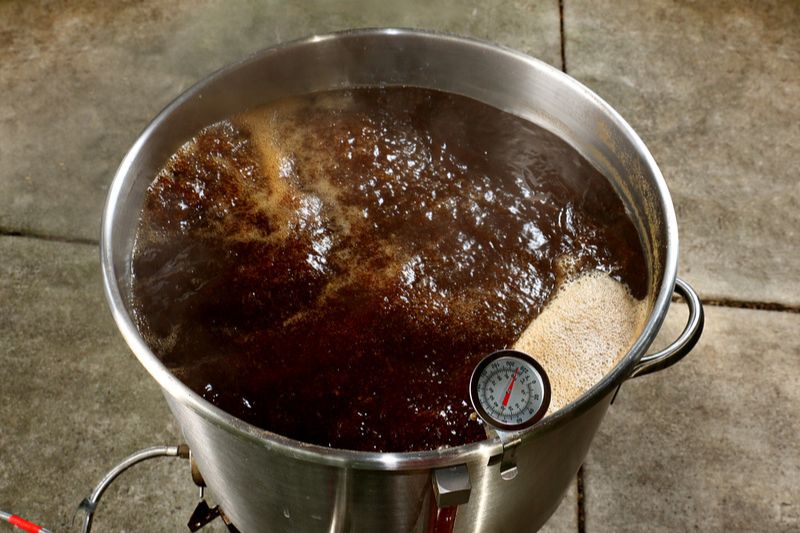One of the first decisions you’ll have to make as a homebrewer is whether to use all grain vs extract brewing methods. Both have their pros and cons. So the decision is generally left up to what you’re comfortable with, how much space you have, and how much money you’re willing to spend to get set up.
When trying to decide whether to go with all grain brewing or extract brewing, you should first know the differences between each method so you can determine which is the best fit for you. Let’s go over the differences now.

Differences Between All Grain and Extract Brewing
The differences between these methods of homebrewing lies in how the sugars are obtained from the grains in the process. Professional brewers use an all grain process of extracting the sugars, while beginner homebrewers typically choose the easier, more streamlined extract brewing process.
All Grain Brewing Process
In all grain brewing, the sugars are extracted from the grains by a process called mashing. The brewer must mash a large amount of crushed malted grains to convert the starches into fermentable sugars. Mashing basically just means soaking the grains in hot water to release the starches and allow the enzymes in the grains to break it down into sugar.
The sugars are then rinsed from the grains in a process called sparging. Brewers either use a one-vessel setup or a three-vessel set up to achieve this goal.
Of course, whether you have a one or three-vessel set up can greatly affect the price of the required equipment. It also has a pretty big impact on the amount of space you need to store and assemble this type of set up.

Pros of all grain brewing:
- Cost of ingredients are lower, because the grains used to extract the sugars are less costly than the already-extracted sugar you need for extract brewing.
- The beer you brew is completely within your control. You can adjust and alter the color, taste, mouthfeel and complexity of the beer.
- All grain brewing is the professional, advanced method of brewing.
Cons of all grain brewing:
- Equipment for all grain brewing can be significantly more than for extract brewing, because of the necessity for additional brew pots and mash tun.
- Takes significantly longer than extract brewing, making your brew day longer.
- You need more space to have an all grain set up, unless you use the brew in a bag method.
Extract Brewing Process
Extract brewing allows you to skip the step of mashing the grains to extract the sugars from the grains, because someone has already done it for you and provided either a liquid or dry malt extract that you can buy.
While the cost of the malt extract is quite a bit higher than the cost of the grains you’d need to do it yourself, you get the benefit of not having to do it yourself, thus saving time and effort.

Pros of extract brewing:
- Time savings of not having to mash the grains yourself. This can amount to about a 1-2 hour time savings.
- Easy to do and requires no extra equipment. You just pour the extract into the wort and stir.
- Less variables to deal with, leading to consist results and less possible issues with the resulting beer.
Cons of extract brewing:
- Malt extract costs roughly double the cost of the grains you’d need to do it yourself.
- Can limit the amount of creativity you can have with a recipe based on the type of extract you can get ahold of, though if you search online, you’ll likely find what you need.
- Extract may not contribute as much mouthfeel to your finished beer.
- Not seen as the most “purist” way of brewing beer.
What About Partial-Extract (aka Partial-Mash) Brewing?
There is actually a third method of brewing, which combines the two into a process that gives a bit more control over the grains, but doesn’t require a full mash and sparge.
This is my method of choice, because it allows me to gain slightly more control over the color and mouthfeel of the beer without requiring me to convert 100% to all grain brewing, which I don’t have room for.
In this process, you would mash a smaller amount of grains and use malt extract for the rest. The process of mashing is the same, but since the grain bill is much less, you don’t need the same amount of space.
One of the main problems brewers face with extract brewing is the limited amount of creativity they can have, because a recipe requires a different type of extract than is readily available or requires the mashing or steeping of specialty grains.
With partial-mash brewing, you can add those special grains by mashing only those. The smaller amount of grains can be placed in a brew bag and submerged in the water, which is much easier to deal with and clean up at the end of the process.

Which is the Right Method For You?
As you’ve already learned above, the main considerations you need to take into account are:
- Time
- Money
- Space
- Flexibility
If you’re not worried about any of these considerations, then you don’t really have to choose between these methods. If you want the flexibility to use either method, you just need to shell out the extra money for the all grain set up, and then you can decide which process to use each time you brew.
If you want to cut down on the amount of time it takes to make beer on brew day, you might want to stick with extract brewing, as it knocks about 2-3 hours off the process.
If what you really want to get out of your homebrewing experience is the ability to control and manipulate the beer, which provides the most flexibility and creativity, you’ll want to go for all grain brewing. It’s really the only way you can have complete control over the outcome of the beer.
If you’ve decided you definitely want to do all grain brewing, but don’t have the space, money for an expensive and elaborate setup, or don’t want to get into a much more tedious and complicated process, then the best options would be to get a home brewing machine, like BEERMKR, that will take care of the mashing and everything else for you inside the machine.
CONCLUSION
No matter which method you choose, you can make great beer at home. All it takes is patience and determination. If you’ve started homebrewing and had some success, share it with us in the comments.

Laura is the founder and editor of the travel blogs Savored Sips and Savored Journeys. She is dedicated to sharing the best information about drinks found around the world.
